This article was co-authored by Scott Anderson, MA, ATC, SFMA, DNSP and by wikiHow staff writer, Sophia Latorre. Scott Anderson is the Chief Clinical Officer at SyncThink, an award winning startup founded out of Stanford University. Scott previously served as the Director of Sports Medicine/Athletic Training for Stanford University for over ten years from 2007 to 2017. Scott has over 18 years of clinical and management experience, and is a recognized international speaker on topics of clinical specialization, which include developmental kinesiology, neuroscience/concussion, and movement dysfunction. He is a certified Dynamic Neuromuscular Stabilization Practitioner (DNSP), Sports Safety Specialist and is certified to conduct Selective Functional Movement Assessments (SFMA), and Functional Movement Screenings (FMS). He earned a BS in Athletic Training from Washington State University in 2000 and an MA in Athletic Administration from Saint Mary's College in 2002.
There are 9 references cited in this article, which can be found at the bottom of the page.
wikiHow marks an article as reader-approved once it receives enough positive feedback. In this case, 92% of readers who voted found the article helpful, earning it our reader-approved status.
This article has been viewed 1,292,582 times.
A concussion is a traumatic brain injury that most often occurs when someone is hit in the head. Concussions can also occur due to falling, physical abuse, vehicle, bicycle, or pedestrian collisions, and injuries from contact sports such as rugby and football. Though the effects of a concussion are usually temporary, a person with a suspected concussion should be evaluated by a healthcare professional. Repeated concussions can cause serious damage to the brain, including chronic traumatic encephalopathy (CTE).[1] Though it may seem like a scary situation, most people with concussions fully recover within a few days.[2]
Steps
Checking for Immediate Signs
-
1Determine if the victim has lost consciousness. Not everyone who gets a concussion will lose consciousness, but some people do. This is the most obvious sign that someone has a concussion. If the person has blacked out after a blow to the head, seek emergency medical treatment.[3]
-
2Watch for slurred or unclear speech. Ask the person some basic questions such as, “What is your name?” and “Do you know where you are?” If their answers are delayed, slurred, don’t make sense, or are hard to understand, they may have a concussion.Advertisement
-
3Find out if the victim is confused or doesn’t remember what happened. If the person has a blank stare, seems confused, or doesn’t know where they are, it could be a sign of a brain injury. If they seem dazed, don’t remember what happened, or appear to have memory loss, they likely have a concussion.[4]
-
4Watch for nausea or vomiting. If someone vomits, especially repeatedly, after being hit in the head or involved in another type of accident, this usually indicates a concussion. If they haven’t vomited, ask them if they feel nauseated or have an upset stomach, which may also be a sign of a concussion.[5]
-
5Look for impaired balance or coordination. People with concussions often have problems with their motor skills, such as being unable to walk in a straight line or catch a ball. If the person is having trouble with these things or has a delayed reaction time, they likely have a concussion.
-
6
-
7Watch the person carefully for 3-4 hours. If you suspect a concussion, the person should be carefully monitored for the next several hours. Symptoms of a concussion often change over a period of time.[8] It’s not a good idea to leave them alone, in case they end up needing emergency medical treatment. If possible, arrange for someone to stay with the person for at least a few hours after the incident and monitor their behavior.
Monitoring Them for Additional Symptoms
-
1Look for symptoms over the next several days or weeks. While some concussion symptoms show up immediately, some don’t appear until days or weeks afterwards. Even if the person seemed fine after the incident, they may begin to show signs of a concussion later on.[9]
- The victim may exhibit signs such as slurred speech, confusion, nausea or vomiting, impaired balance or coordination, dizziness, blurred vision, or headache.
- These symptoms could indicate medical issues other than a concussion, so it’s important to have the person examined by a healthcare provider.
-
2Watch for changes in mood and behavior over the next month. Sudden changes in behavior or mood often indicate a concussion. If the person seems grouchy, irritable, angry, sad, or otherwise emotional, seemingly without a reason, they may have a concussion. If the person becomes violent, acts out, or loses interest in their favorite things or activities, this can also indicate a concussion.[10]
-
3Determine if they have sensitivity to light or sound. People that are suffering from concussions are often more sensitive to bright lights and loud noises. If these things make the person cringe or complain of pain, or if they have ringing in their ears, they may have a concussion.[11]
-
4Recognize changes in eating or sleeping patterns. Look for behavior that contradicts their usual patterns or habits. If the person has lost their appetite or is eating much more than normal, it could be a sign of a concussion. Similarly, if the person has trouble sleeping or is sleeping excessively, they may have a concussion.[12]
-
5Find out if the victim has problems with memory or concentration. Even if the person seems clear-headed after the incident, they may develop issues later on. If they seem unfocused, unable to concentrate, or have trouble remembering things that happened either before or after the incident, they likely have a concussion.[13]
-
6Watch for excessive crying in children. If the person that you suspect may have a concussion is a child, determine if they seem to be crying more than usual. Though most of the concussion symptoms are the same in children and adults, children may cry excessively because they are in pain, feeling off, or don’t know how to express what is wrong.[14]
Seeking Medical Treatment
-
1Seek emergency medical care for seizures, difficulty breathing, or fluid leaking from the ears. If the victim doesn’t respond or wake up after losing consciousness, experiences worsening headaches, vomits repeatedly, has blood or fluid leaking from the ears and nose, has a seizure, difficulty breathing, or slurred speech, take them to the emergency room immediately. These symptoms could indicate a very serious brain injury.[15]
-
2Get a medical evaluation for anyone with a suspected concussion within 1-2 days. Even if emergency medical treatment isn’t required, all head injuries should be evaluated by a licensed healthcare professional. If you suspect someone has a concussion, take them to the doctor within 2 days of the incident.[16]
-
3Get immediate medical attention if the victim’s symptoms worsen. In general, the symptoms of a concussion decrease over time. If the opposite is happening and the person experiences worsening pain, such as headache, and/or increased fatigue, seek immediate medical attention. These signs could indicate a more serious injury.
-
4Follow the prescribed treatment plan. Usually, bed rest is prescribed for people with concussions. This includes both physical and mental rest, meaning the person should avoid physical activity (like exercise) as well as strenuous mental activity (such as playing video games or doing crossword puzzles). Be sure to rest for as long as the doctor recommends, and always follow any other treatment plan as prescribed by your healthcare provider.[17]
-
5Avoid exercise and activity until cleared by a doctor. If the victim got a concussion while playing a sport, exercising, or doing another physical activity, remove the person from the game or activity. They should not resume the activity until evaluated by a doctor, especially if it is a contact sport in which they may get hit again.
Expert Q&A
-
QuestionHow can I tell if a head injury is mild or severe?
 Scott Anderson, MA, ATC, SFMA, DNSPScott Anderson is the Chief Clinical Officer at SyncThink, an award winning startup founded out of Stanford University. Scott previously served as the Director of Sports Medicine/Athletic Training for Stanford University for over ten years from 2007 to 2017. Scott has over 18 years of clinical and management experience, and is a recognized international speaker on topics of clinical specialization, which include developmental kinesiology, neuroscience/concussion, and movement dysfunction. He is a certified Dynamic Neuromuscular Stabilization Practitioner (DNSP), Sports Safety Specialist and is certified to conduct Selective Functional Movement Assessments (SFMA), and Functional Movement Screenings (FMS). He earned a BS in Athletic Training from Washington State University in 2000 and an MA in Athletic Administration from Saint Mary's College in 2002.
Scott Anderson, MA, ATC, SFMA, DNSPScott Anderson is the Chief Clinical Officer at SyncThink, an award winning startup founded out of Stanford University. Scott previously served as the Director of Sports Medicine/Athletic Training for Stanford University for over ten years from 2007 to 2017. Scott has over 18 years of clinical and management experience, and is a recognized international speaker on topics of clinical specialization, which include developmental kinesiology, neuroscience/concussion, and movement dysfunction. He is a certified Dynamic Neuromuscular Stabilization Practitioner (DNSP), Sports Safety Specialist and is certified to conduct Selective Functional Movement Assessments (SFMA), and Functional Movement Screenings (FMS). He earned a BS in Athletic Training from Washington State University in 2000 and an MA in Athletic Administration from Saint Mary's College in 2002.
Sports Medicine & Injury Prevention Specialist A neurological specialist will be able to rule out other problems, like cervical injury, that can have similar symptoms to a head injury.
A neurological specialist will be able to rule out other problems, like cervical injury, that can have similar symptoms to a head injury. -
QuestionIs it ok to take Ibuprofen if there's a possible concussion?
 Jonas DeMuro, MDDr. DeMuro is a board certified Pediatric Critical Care Surgeon in New York. He received his MD from Stony Brook University School of Medicine in 1996. He completed his fellowship in Surgical Critical Care at North Shore-Long Island Jewish Health System and was a previous American College of Surgeons (ACS) Fellow.
Jonas DeMuro, MDDr. DeMuro is a board certified Pediatric Critical Care Surgeon in New York. He received his MD from Stony Brook University School of Medicine in 1996. He completed his fellowship in Surgical Critical Care at North Shore-Long Island Jewish Health System and was a previous American College of Surgeons (ACS) Fellow.
Board Certified Critical Care Surgeon Ibuprofen, sold under the brand name Motrin, is an NSAID drug. As such, it effects platelet function, and can be associated with bleeding. As a concussion may have a small amount of cerebral hemorrhage, you should not take Ibuprofen (Motrin), as it potentiates the bleeding. Discuss this with your physician so he can give specific advice your your situation if analgesic medications are needed.
Ibuprofen, sold under the brand name Motrin, is an NSAID drug. As such, it effects platelet function, and can be associated with bleeding. As a concussion may have a small amount of cerebral hemorrhage, you should not take Ibuprofen (Motrin), as it potentiates the bleeding. Discuss this with your physician so he can give specific advice your your situation if analgesic medications are needed. -
QuestionAre intermittent headaches a symptom of a concussion?
 Sarah Gehrke, RN, MSSarah Gehrke is a Registered Nurse and Licensed Massage Therapist in Texas. Sarah has over 10 years of experience teaching and practicing phlebotomy and intravenous (IV) therapy using physical, psychological, and emotional support. She received her Massage Therapist License from the Amarillo Massage Therapy Institute in 2008 and a M.S. in Nursing from the University of Phoenix in 2013.
Sarah Gehrke, RN, MSSarah Gehrke is a Registered Nurse and Licensed Massage Therapist in Texas. Sarah has over 10 years of experience teaching and practicing phlebotomy and intravenous (IV) therapy using physical, psychological, and emotional support. She received her Massage Therapist License from the Amarillo Massage Therapy Institute in 2008 and a M.S. in Nursing from the University of Phoenix in 2013.
Registered Nurse Yes, it is possible. Post-concussion headaches can vary and may also feel like a tension headache or even a migraine. Sometimes the tension-type headache can be caused from a neck injury that happened at the same time of the head injury. If you have a concern, you should talk to a doctor -- especially if memory loss or confusion is also present.
Yes, it is possible. Post-concussion headaches can vary and may also feel like a tension headache or even a migraine. Sometimes the tension-type headache can be caused from a neck injury that happened at the same time of the head injury. If you have a concern, you should talk to a doctor -- especially if memory loss or confusion is also present.
Warnings
- A serious head injury can result in a coma if the victim is not treated immediately.⧼thumbs_response⧽
- Repeated injury to the brain can lead to brain swelling, long-term disabilities, or death. You are more likely to suffer repeated concussions if you do not allow the brain to heal after an initial concussion.⧼thumbs_response⧽
- Severity of a head injury may be difficult to assess but if someone is knocked unconscious call emergency services. Brain hemorrhage should be ruled out and may not exhibit symptoms right away. A slow bleed could affect the person days after injury.⧼thumbs_response⧽
References
- ↑ https://www.bu.edu/cte/about/frequently-asked-questions/
- ↑ https://www.mayoclinic.org/diseases-conditions/concussion/symptoms-causes/syc-20355594
- ↑ https://www.mayoclinic.org/diseases-conditions/concussion/symptoms-causes/syc-20355594
- ↑ https://www.mayoclinic.org/diseases-conditions/concussion/symptoms-causes/syc-20355594
- ↑ https://www.cdc.gov/headsup/basics/concussion_symptoms.html
- ↑ Scott Anderson, MA, ATC, SFMA, DNSP. Sports Medicine & Injury Prevention Specialist. Expert Interview. 24 March 2020.
- ↑ https://www.mayoclinic.org/diseases-conditions/concussion/symptoms-causes/syc-20355594
- ↑ Scott Anderson, MA, ATC, SFMA, DNSP. Sports Medicine & Injury Prevention Specialist. Expert Interview. 24 March 2020.
- ↑ https://www.cdc.gov/headsup/basics/concussion_symptoms.html
- ↑ http://kidshealth.org/en/teens/concussions.html
- ↑ https://www.aans.org/en/Patients/Neurosurgical-Conditions-and-Treatments/Concussion
- ↑ https://kidshealth.org/en/teens/concussions.html
- ↑ https://www.nhs.uk/conditions/concussion/
- ↑ https://www.nhs.uk/conditions/concussion/
- ↑ https://www.brainline.org/qa/when-go-hospital
- ↑ https://www.mayoclinic.org/diseases-conditions/concussion/symptoms-causes/syc-20355594
- ↑ https://www.nhs.uk/conditions/concussion/
About This Article
To tell if a person has a concussion after they hit their head, ask them basic questions, like “What is your name?” or “What day is it?” Listen for slurred speech or signs of confusion, which may be a sign of a concussion. In addition, watch them carefully for signs of dizziness, nausea, or disorientation. If you suspect a person has a concussion, stay with them for about 3-4 hours in case they need medical assistance, and bring them to a doctor within 1-2 days. If the person loses consciousness, they almost certainly have a concussion and may need emergency medical treatment. For tips from our medical reviewer on how to treat a concussion, read on!
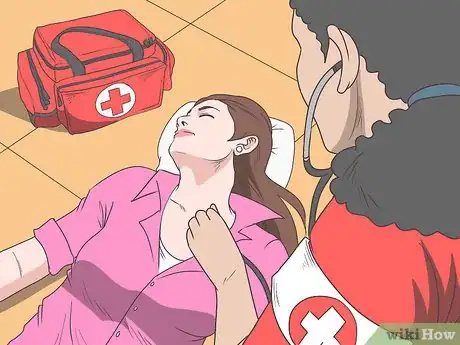

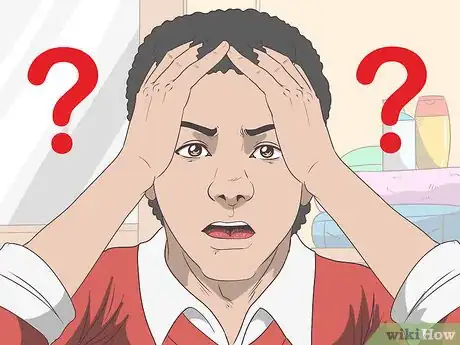




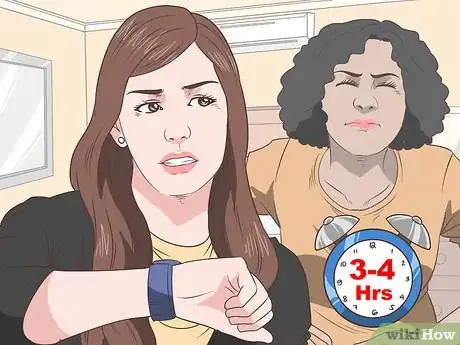
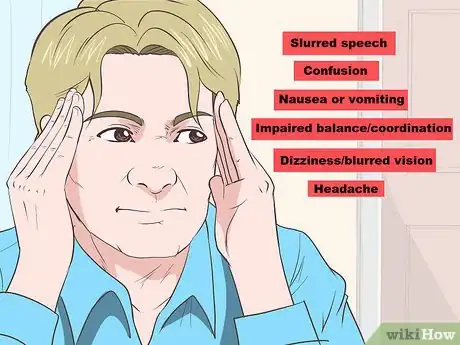

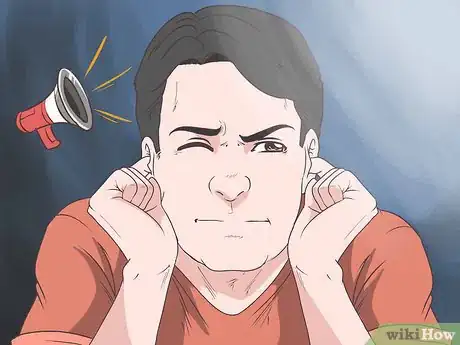



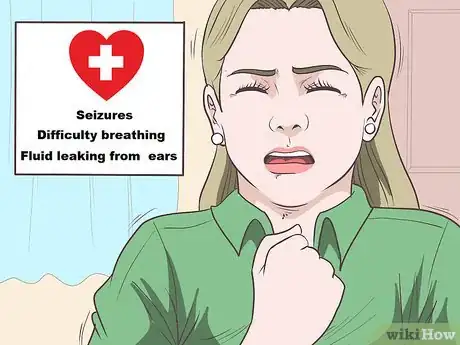

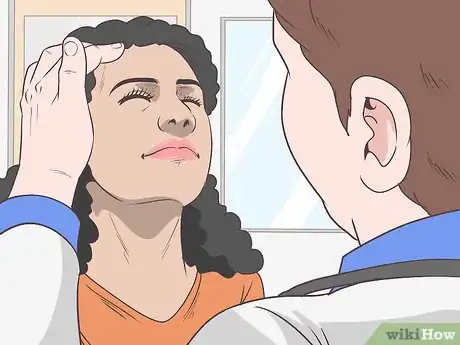

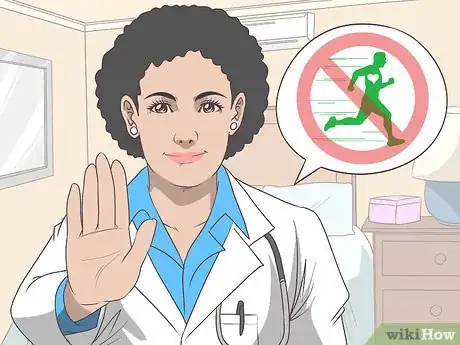
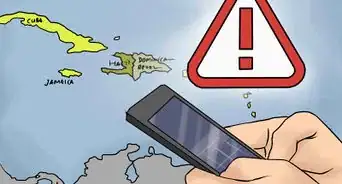
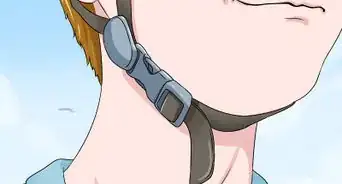



-Step-14.webp)









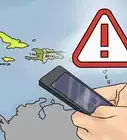
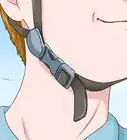





































Medical Disclaimer
The content of this article is not intended to be a substitute for professional medical advice, examination, diagnosis, or treatment. You should always contact your doctor or other qualified healthcare professional before starting, changing, or stopping any kind of health treatment.
Read More...